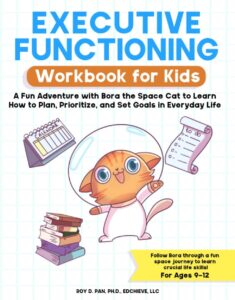In this article, we explore the main components of executive functions in children and how they relate to the concepts of growth mindset. Executive functions play a crucial role in a child’s ability to plan, organize, and carry out tasks successfully. By understanding the core aspects of executive functions, we can better support children’s cognitive development and foster a growth mindset that encourages resilience and problem-solving. So, let’s dive into the fascinating world of executive functions and discover the key components that shape children’s cognitive abilities.
Main Components of Executive Functions in Children
Executive functions are a set of cognitive skills that are vital for a child’s overall development. These skills help in the management of thoughts, emotions, and actions, allowing children to effectively navigate their daily lives. In this article, we will explore the main components of executive functions in children and discuss their importance in shaping their cognitive abilities and social interactions.

Working Memory
Working memory refers to the ability to hold and manipulate information in the mind for short periods of time. It acts as a temporary workspace where children can actively process and mentally organize information. For example, when solving a math problem, working memory helps to keep track of the numbers and the steps involved in the calculation. Developing a strong working memory allows children to successfully carry out complex tasks, follow instructions, and make critical decisions.
Inhibition
Inhibition is the ability to stop or control impulsive behaviours, thoughts, and emotions. It enables children to resist distractions and stay focused on a task. For instance, when a child is playing a game and sees something attractive nearby, their ability to inhibit the impulse to leave the game and explore the distraction is crucial. Developing inhibition skills allows children to better regulate their behaviour, manage their impulses, and make thoughtful decisions.
Cognitive Flexibility
Cognitive flexibility refers to the ability to adapt and switch between different tasks or mental sets. It involves shifting attention, modifying strategies, and adjusting to new situations. For example, when a child is asked to switch from colouring to writing, they rely on cognitive flexibility to transition smoothly between the tasks. Cultivating cognitive flexibility empowers children to think creatively, problem-solve efficiently, and cope with changes in their environment.
Planning and Organization
Planning and organization are essential executive functions that enable children to set goals, create strategies, and arrange tasks in a logical order. These skills help them break down complex tasks into manageable steps and allocate resources effectively. For instance, when preparing for a school project, planning and organization skills assist children in gathering information, creating a timeline, and allocating time and resources for each task. Developing effective planning and organization abilities allows children to prioritize tasks, manage their time efficiently, and achieve their goals.

Task Initiation
Task initiation is the ability to independently start and engage in a task without undue procrastination or delay. It involves overcoming inertia and activating the cognitive processes necessary for task completion. For example, initiating homework requires children to overcome the initial resistance to starting and begin working on their assignments. Nurturing task initiation skills enables children to take initiative, overcome barriers, and develop productive work habits.
Time Management
Time management encompasses the ability to estimate and allocate time effectively to different tasks. It involves understanding the passage of time, setting deadlines, and prioritizing activities within a given timeframe. For instance, when faced with multiple homework assignments, effective time management skills assist children in determining the order of tasks and allocating sufficient time to each one. Developing strong time management skills allows children to become more organized, meet deadlines, and better balance their responsibilities.

Emotional Regulation
Emotional regulation refers to the ability to understand, express, and regulate one’s emotions appropriately. It involves recognizing and managing emotional reactions in a way that aligns with social norms and personal well-being. For example, when facing a frustrating situation, emotional regulation skills enable children to control their anger, calmly communicate their feelings, and seek appropriate solutions. Cultivating emotional regulation abilities helps children build strong relationships, resolve conflicts effectively, and navigate social interactions successfully.
Response Inhibition
Response inhibition is the ability to suppress or inhibit automatic or inappropriate responses and instead select more appropriate and controlled responses. It plays a crucial role in self-control, decision-making, and impulse management. For instance, when tempted to interrupt someone during a conversation, response inhibition helps children refrain from speaking out of turn and wait for their turn to speak. Enhancing response inhibition skills allows children to think before acting, consider alternative options, and make more reasoned choices.
Sustained Attention
Sustained attention refers to the ability to maintain focus and concentration over a prolonged period of time. It involves resisting distractions, filtering irrelevant information, and staying engaged in a task. For example, when reading a book, sustained attention allows children to stay engrossed in the story and comprehend the content. Developing sustained attention skills enables children to concentrate on academic tasks, follow instructions effectively, and complete tasks with accuracy and efficiency.
Goal-Directed Persistence
Goal-directed persistence refers to the ability to persevere and stay committed to achieving a goal, even when faced with obstacles or setbacks. It involves maintaining effort, managing frustrations, and adapting strategies to overcome challenges. For example, when practising a musical instrument, goal-directed persistence enables children to keep practising, even if they make mistakes or face difficulties. Cultivating goal-directed persistence skills empowers children to persevere in the face of adversity, develop a growth mindset, and achieve long-term success.
In conclusion, the main components of executive functions in children play a vital role in their cognitive development, social interactions, and overall functioning. Working memory, inhibition, cognitive flexibility, planning and organization, task initiation, time management, emotional regulation, response inhibition, sustained attention, and goal-directed persistence are all interconnected skills that contribute to a child’s ability to succeed academically, navigate relationships, and face challenges with resilience. By understanding and supporting the development of these executive functions, parents, educators, and caregivers can help children thrive and reach their full potential.





